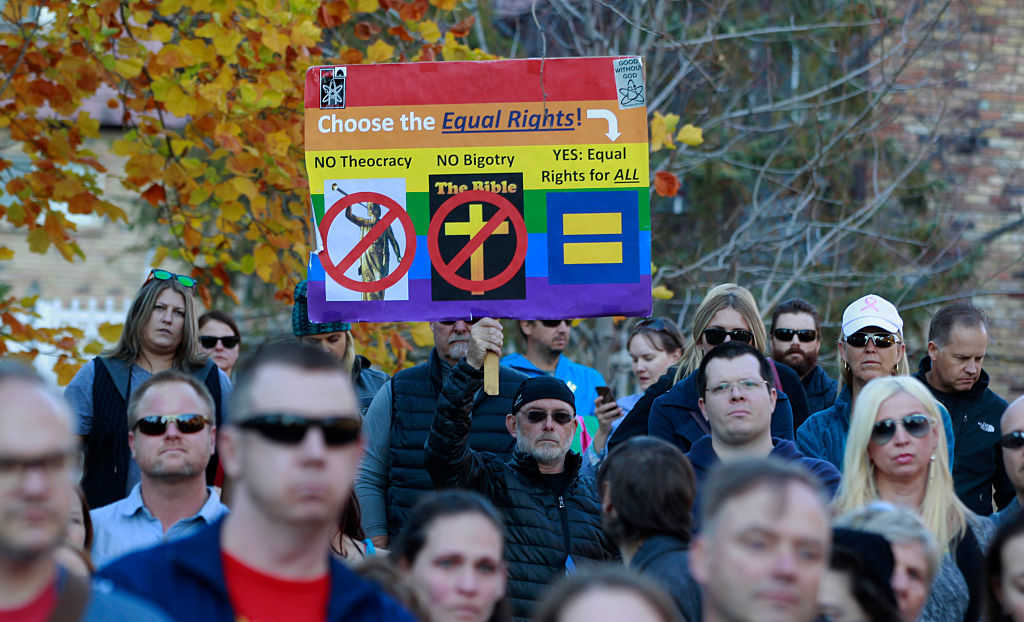The House voted Thursday to pass landmark LGBTQ legislation in a move that critics say would crush religious liberty.
The vote was 224 to 206 with three Republicans joining the Democrat majority to vote “Yes.”
The bill, known as the Equality Act or H.R.5, passed 236-173 in the House in 2019 although it died in the Senate. Now, it’s possible the Senate will give it a real look.
The legislation expands the 1964 Civil Rights Act by broadening the definition of protected classes to include sexual orientation and gender identity. At the same time, it falls short on religious exemptions, potentially forcing individuals or faith-based organizations to choose between religious beliefs and following the law.
Pastor Sam Rodriguez, president of the National Hispanic Christian Leadership Conference, characterized it as a move to exchange the human rights of one group for another. “We cannot protect one minority by disenfranchising the sincerely held religious beliefs of another minority,” he said.
Many conservative groups like the Southern Baptists, Heritage Foundation and the Family Research Council (FRC) oppose the Equality Act, citing religious liberty.
Republican Rep. Chris Stewart of Utah is offering an alternative approach that has picked up bi-partisan support. The Fairness for All Act (FFA) would offer LGBTQ civil rights protections in areas like housing and employment while protecting religious freedom.
“There’s room here to find an area where both can be accommodated, where both can be comfortable,” he told CBN News. “The Equality Act doesn’t do that. Fairness for All will.”
But many conservative groups oppose FFA as well, saying its religious freedom protection is not robust.
The Ethics & Religious Liberty Commission (ERLC), the public policy arm of the Southern Baptists, praises the intentions of FFA but calls its faith protections insufficient.
“Fairness for All does not strike an effective, durable and politically feasible balance of public policy regarding God-given conscience rights and the demands of the sexual revolution,” it warned in a statement.
The big question for now is whether or not the Senate will debate the Equality Act or allow it to die and serve as an election wedge issue. Already, moderate Republicans are backing off. Sen. Susan Collins (R-ME), an early sponsor, has pulled out, and Sen. Mitt Romney (R-UT) says he opposes it, citing religious liberty.
Still, there’s strong momentum behind the measure, including powerful backing from President Biden who has long called it his top legislative priority.
It’s why FFA supporters maintain that conservatives should work with them, or risk passage of the Equality Act.


